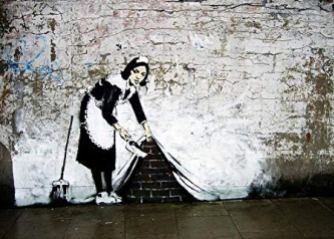We have around a year to wait until Denis Villeneuve’s Dune is set for release. This seems like a good time to revisit David Lynch’s underrated gem. I first saw the film when on its original VHS video release in the mid 80’s. I would have been around 10 or 11 at the time. I loved it and watched it twice in the little over 24 hours before the tape had to be returned. I immediately told anyone who would listen (and a few who weren’t listing) how amazing it was, I think I said “better than Star Wars”. Nobody agreed! Everyone I convinced to watch it hated it. It wasn’t until years later after I had watched it many times that I understood that the film, bombed at the box-office, was universally hated and received terrible reviews. 
For those not familiar with Dune, it is based on Frank Herbert novel from 1965. Set around twenty-thousand years in the future; the universe is split into what essentially amounts to medieval fiefdoms. Two are these House Atreides, and House Harkonnen are sworn enemies. The former is ordered by the Padishah Emperor Shaddam IV, the effective ruler of the universe to replace the latter as rulers of the planet Arrakis aka Dune. Arrakis, an inhospitable desert planet, and the only place the only source of melange, or “the spice”. Spice is the most valuable substance in the universe, a drug that heightens awareness, prolongs life, and is essential for intergalactic space travel.
The aforementioned medieval fiefdoms are the crux of both the setting and the plot. The overlying story is Paul Atreides bith as a hero. The birth of a hero is an age old concept; the hero experiences loss, followed by hardship, and often exile. He overcomes his circumstances and then graduates to hero status by confronting and defeating firstly his personal daemons, then his adversary, and the source of evil. If you wish to explore the character further, there is a strong argument that Paul’s story is a white saviour narrative.
The film looks amazing. Director, David Lynch had by this time made two stunning movies: Eraserhead (1977), and The Elephant Man (1980). He amassed a fantastic, and experienced team including: Cinematographer: Freddie Francis (winner of two Oscars (one at the time)), Production Designer: Anthony Masters – (Oscar nominated for 2001: A Space Odyssey). The large practical sets have combine Venetian, Victorian, and Art Deco architecture that looks simultaneously futuristic and historical. The production design include elements of Nazi symbolism, cyberpunk and steampunk.
I can see some of the reasons why people don’t like the movie. There are two things that stand out that are at odds with peoples expectations. Firstly there is an almost entire lack of humour or brevity. Second the film doesn’t have the clearest narrative. Most of the plot is set out at the start. The film is about mood and character, once you accept this, it is more satisfying than a typical formulaic movie. The film is also more cerebral than emotional making it difficult to fall in love with. A plotline common to many stories describing the birth of a hero. He has unfortunate circumstances forced onto him. After a long period of hardship and exile, he confronts and defeats the source of evil in his tale.
The film is packed with fantastic characters steeped in back story, some of which is explored, others are left as colour. The cast is perfect; Kyle MacLachlan has the fresh innocence of a young actor giving him space to grow into the part This is perfectly balenced with the gravitas of the more thespian Francesca Annis, Siân Phillips, Patrick Stewart, Jürgen Prochnow, and Max von Sydow. This is further enhanced by the over the top Kenneth McMillan, Sting, and Dean Stockwell. All the characters, as well as a lot of supporting characters I haven’t mentioned inhabit their parts making them totally believable in the fantastical setting. Key amongst the characters are:
House Atreides – Rulers of a water planet of Caladan. Noted warriors, they have created a new sound based weapon.
Paul Atreides (Kyle MacLachlan): The hero of the story
Lady Jessica (Francesca Annis): Mother of Paul, concubine of the Duke and a member of the Bene Gesserit
Duke Leto Atreides (Jürgen Prochnow): head of House Atreides
Gurney Halleck (Patrick Stewart): Areides military leader, Pauls teacher, fiercely loyal to Paul and Leto.
Doctor Yueh (Dean Stockwell): Doctor for the Atreides, with an important role in the plot.
House Harkonnen – A brutal house, and the villains of the movie. They have hey have been involved in a feud with House Atreides for a thousand years (in the book it dates back to a slight ten thousand years earlier).
Baron Vladimir Harkonnen (Kenneth McMillan):head of House Harkonnen.
Feyd-Rautha (Sting): Nephew and heir of the Baron.
Glossu “Beast” Rabban (Paul Smith): Older but somewhat inept nephew of the Baron
House Corrino – The ruling house of the Known Universe (often called the Imperium)
Shaddam IV, Padishah (José Ferrer):Emperor of the Known Universe
Princess Irulan (Virginia Madsen): Daugter and heir to the Emperor, and the narator of the movie.
Bene Gesserit – Female social, religious, and political organisation. Members train from a young age to obtain superhuman/magical abilities.
Reverend Mother Gaius Helen Mohiam (Siân Phillips): Head of the Bene Gesserit, loyal to the Emperor.
Fremen: The Fremen, Natives of Arrakis, noted for their bright blue eyes.
Stilgar (Everett McGill): Fremen Naib chieftain
Chani (Sean Young): Freman warrior and Paul’s lover
Spacing Guild – Organization that runs banking and commerce, but most importantly has a monopoly on interstellar travel thanks to their ability to fold space with the help of Melange. The real power in the universe!
I have heard fans of the book criticise the film for differing too much from the book. I don’t see this, Having read the book a few years after seeing the film, it is very faithful to the themes and spirit of the book. Author Frank Herbert spent a lot of time on set, and in a interview suggested it was one of the most faithful book to film adaptations ever. I understand Lynch’s preferred cut was three hours long, around 45 minutes longer than the released versions. It is my understanding that there are two longer cuts available, but not a director’s cut, quite the opposite, Lynch had his name removed from one of them! In the same way that Star Wars is an adventure story and the TV show Firefly is a western, Dune is a historical epic. A key theme of the story is how a group of people is a distillation of their leader. This comes though in the look and costumes of the “houses” as well as their actions. Arrakis could be seen as colonial Africa, Asia, or the Americas. The spice Melange is a clear metaphor for the rescores striped from the developing world, such as oil.
At the heart of the story we have a prophecy, this is the most Sci-Fi/Fantasy thing about the movie. This gives us both the setup and the conclusion to the story. The Spacing Guild’s power over the Emperor tell us so much, it could be seen as a historic story such as precarious or declining empire such as Rome. However it could also be seen as a very modern statement about how corporations can be bigger and more powerful than nations. This may appear to be a very modern idea especially for the 1960’s when the book was written, however, look at William Randolph Hearst in the early 20th century. There are themes of the book that don’t make it to the film, but they ate more subtext in the first book, but they do become more overt from the second book Dune Messiah. Frank Herbert has spoken of the underlying idea of being beware of heroes. Paul is a man who acts, and more importantly is treated like a god. This fanaticism is clearly frightening and dangerous. The book ends with Paul setting the Fremen on a Jihad that he knows he cannot control or stop. This becomes more important in the later books.
It is a film I love, and hope that with the publicity leading up to Denis Villeneuve’s version, I hope more people look it out. And those who have seen it and dismissed, it, give it another go!







































